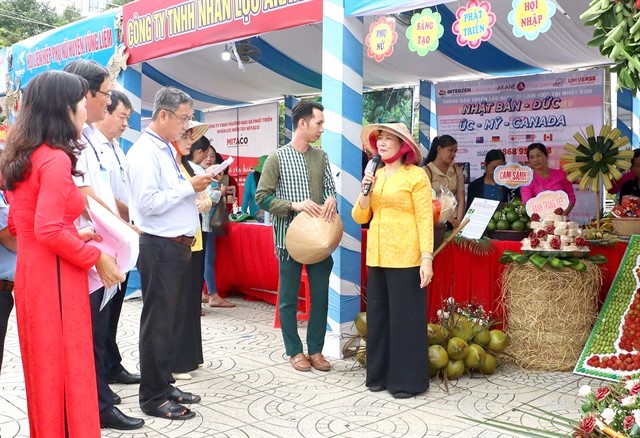The Index evaluates three pillars of a country’s development: community impact, gender and climate.

A new tool to measure Việt Nam’s progress towards inclusive, sustainable development was introduced on Thursday at a conference on impact investment in Hà Nội.
Organised by the Vietnam Chamber of Commerce and Industry (VCCI) and the Global Affairs Canada (GAC), the 2024 Vietnam Impact Investment Forum brought together over a hundred key players from across the regional and domestic impact investment ecosystem, including investors, social impact businesses, innovators and agents of change.
The Orange Index, developed by the Singapore-based Impact Investment Exchange (IIX) investment consulting firm, focusses on evaluating three pillars of a country’s development: community impact, gender and climate.
It is grounded in data collected by IIX from hundreds of sustainable micro, small and medium enterprises (MSME) and uses a scoring system from 1 to 100, with 100 representing the highest level of achievement.
Việt Nam achieved an Orange Index score of 50 this year, which surpassed the global average of 41 and placed the country among leaders in ASEAN.
Among the three pillars, Việt Nam made significant improvement on gender equality and earned a score of 49, which was above the global average and ahead of most ASEAN counterparts.
However, challenges remain in environmental sustainability where Việt Nam scored 43, which means targeted interventions are needed, particularly in cases of waste management, water conservation and soil health.
The statistics were released in the 2023-2024 Vietnam Orange Index Report, which was produced as the result of the four years that IIX spent tracking the evolution of Việt Nam’s impact investment ecosystem.
Impact investing is the deployment of funds into investments that generate a measurable and beneficial social or environmental impact, alongside a financial return on investment, according to the United Nations Development Programme.
It is a way to increase the private sector’s contribution to a country’s sustainable development.

Speaking at the event, Lương Minh Huân, director of VCCI’s Enterprise Development Foundation said: “Việt Nam’s social impact businesses are playing a crucial role in advancing both social and environmental goals.
“While we celebrate the progress reflected in the Orange Index, the lower score in the environmental pillar emphasises the need for continuous investment and policy reform to enhance sustainability and long-term resilience.”
IIX CEO and founder Durreen Shahnaz said: “We are excited to introduce the Orange Index in Việt Nam, an economy on the cusp of leading ASEAN’s next wave of sustainable, inclusive growth.
“We are committed to advancing the Orange Movement, unlocking the full potential of Việt Nam’s dynamic social impact ecosystem. This initiative goes beyond investment, it reflects our unwavering dedication to a future where gender equality and sustainability drive meaningful progress for all.”
The Orange Movement works towards the fifth UN sustainable development goal of gender equality. It aims to mobilise US$10 billion by 2030 to empower 100 million women, girls and gender minorities.
Discussions were also held to explore gender lens investing, gender-focused impact investing and the challenges that women-led businesses face in Việt Nam.
While micro and small and medium businesses account for 97 per cent of the country’s total enterprises, women-led companies make up only 22 per cent. Many of them grapple with barriers to accessing capital such as limited financial literacy, lack of collateral and difficulty in securing finance. — VNS





